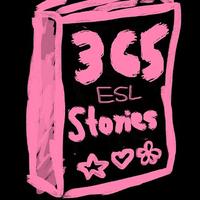16. Halloween – A Holiday for Costumes and Candy
Halloween||||||doce
16. Halloween - Una fiesta de disfraces y caramelos
16. 할로윈 - 코스튬과 사탕을 위한 휴일
16. Halloween - święto kostiumów i słodyczy
16\. Halloween – Um feriado para fantasias e doces
16. Cadılar Bayramı - Kostümler ve Şekerler için Bir Tatil
16.万圣节--服装和糖果的节日
Halloween is on October 31.
Halloween|||outubro
It is also called All Hallows' Eve or All Saints' Eve.
|||||Hallows|Eva||||
Também é chamada de Véspera de Todos os Santos ou Véspera de Todos os Santos.
This is because, according to some, the holiday has its roots in a Christian holiday that remembers the dead.
||||||||||raízes||||||||mortos
Isso porque, segundo alguns, o feriado tem suas raízes em um feriado cristão que lembra os mortos.
Others say the holiday has its roots in the ancient harvest season traditions of Ireland.
||||||||||||||Irlanda
Outros dizem que o feriado tem suas raízes nas antigas tradições da época de colheita da Irlanda.
In the U.S.
Nos E.U.A
though, the focus is less on memories of the dearly departed or agriculture.
porém||||menos|||||querido|||
porém, o foco está menos nas memórias dos falecidos ou na agricultura.
It is about kids dressing up in scary costumes and going door-to-door asking for candy.
||||fantasiando|||assustadores|||indo||||||
É sobre crianças vestindo fantasias assustadoras e indo de porta em porta pedindo doces.
This is called trick-or-treating.
|||travessura||pedir doces
When children knock on the door of a house or ring the doorbell, they usually say "Trick or Treat".
||||||||||tocam||||geralmente||||doce
Quando as crianças batem na porta de uma casa ou tocam a campainha, costumam dizer “Doce ou Travessura”.
The "trick" part is a fake threat signaling that the kids will commit a prank if they aren't given something delicious.
|truque|||||ameaça||||||cometer||brincadeira|||||algo|
A parte do “truque” é uma ameaça falsa, sinalizando que as crianças cometerão uma pegadinha se não receberem algo delicioso.
Homeowners then give the children candy, raisins, or some other food treat.
proprietários (de casa)||||||passas|||||guloseima
Os proprietários então dão às crianças doces, passas ou alguma outra guloseima.
Many homeowners decorate their houses to prepare for the holiday and let kids know that they are participating and can ring the bell for candy.
||||casas|||||||deixam|||||||||||||
Muitos proprietários decoram suas casas para se preparar para o feriado e avisam às crianças que estão participando e podem tocar a campainha para comprar doces.
Traditional decorations often include jack-o'-lanterns, which are pumpkins with faces carved into them and candles inside.
|||||||que||abóboras|com||esculpidas|em|neles|||dentro
As decorações tradicionais geralmente incluem jack-o'-lanterns, que são abóboras com rostos esculpidos e velas dentro.
Jack-o' lanterns were thought to scare away evil spirits when Halloween was first celebrated among the ancient Christians.
|||eram|acreditava-se|||afastar||||||||entre|||
Acreditava-se que as lanternas Jack-o 'afastavam os maus espíritos quando o Halloween foi celebrado pela primeira vez entre os antigos cristãos.
在古代基督徒最初庆祝万圣节时,人们认为杰克灯可以吓走邪灵。
Also turnips, not pumpkins, were originally used.
|nabos|||||
Também nabos, e não abóboras, foram originalmente usados.
此外,最初使用的是萝卜,而不是南瓜。
People often decorate using the colors black and orange.
|||usando||cores|preto||
As pessoas costumam decorar usando as cores preto e laranja.
Halloween is not just for kids; adults get in on the fun by attending costume parties.
|||||||||||||participando|fantasia|festas
O Halloween não é apenas para crianças; os adultos se divertem participando de festas à fantasia.
There are often contests for who has the best costume.
|||concursos||||||
Muitas vezes há concursos para quem tem a melhor fantasia.
There are also games bobbing for apples, where people have to get an apple using only their teeth from a large bucket of water.
||||pegando||maçãs|||||||||||dentes||||balde||
Existem também jogos de pesca de maçãs, em que as pessoas têm que pegar uma maçã usando apenas os dentes de um grande balde de água.
此外,还有 "摇晃苹果 "游戏,人们必须用牙齿从一大桶水中捞起一个苹果。
Other people celebrate by scaring themselves by going to haunted houses, homes where people dressed up as ghosts, zombies, and werewolves and jump out to frighten guests.
outras||||assustando|||||assombradas|||||vestidos|||fantasmas|zumbis||lobisomens|||||assustar|convidados
Outras pessoas comemoram assustando-se indo a casas mal-assombradas, casas onde pessoas fantasiadas de fantasmas, zumbis e lobisomens saltam para assustar os convidados.
People also tell scary stories or watch horror movies.
||||histórias|||terror|filmes

